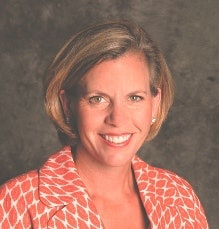 Evelyn Waiwaiole is director of the Center for Community College Student Engagement at The University of Texas at Austin.
Evelyn Waiwaiole is director of the Center for Community College Student Engagement at The University of Texas at Austin.
A rare report on African-American and Latino men at community colleges, released earlier this year, recommended a shift from targeted, “boutique programs” that promote their academic success and typically benefit relatively few students.
That recommendation, from the Center for Community College Student Engagement at The University of Texas at Austin, has converged with a higher education focus in the last few years on improving student completion rates overall.
The center’s report, Aspirations to Achievement: Men of Color and Community Colleges, cites examples of effective community college programs for minority males, but faults them for being small-scale.
“We definitely know men of color need support groups, need to be coached and need a place to feel safe, a place to be mentored,” says Dr. Evelyn Waiwaiole, the center’s director. “But oftentimes when you have Men of Merit or Men of Distinction programs, the average number of students served is 23. What an amazing experience for them. But for all the rest of the students, they’re not a part of that.”
Waiwaiole says the center’s surveys of students at most of the nation’s approximately 1,000 community colleges and other research have clearly established which approaches help students succeed. Adopting them, she says, would also help larger numbers of African-American and Latino men, who enroll heavily in two-year schools.
“There are policies and practices that we know work and we know they work for all students,” Waiwaiole says. “All the more reason, with men of color, we need to make sure that they’re participating and getting advised and coached on these practices.”




















